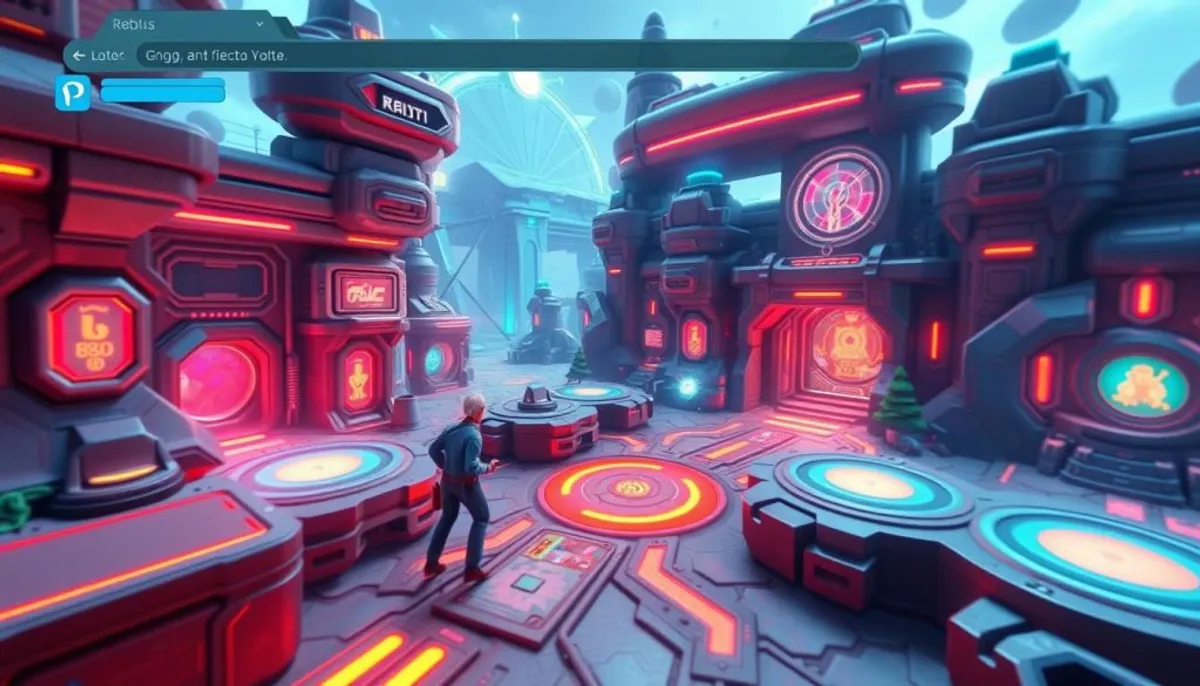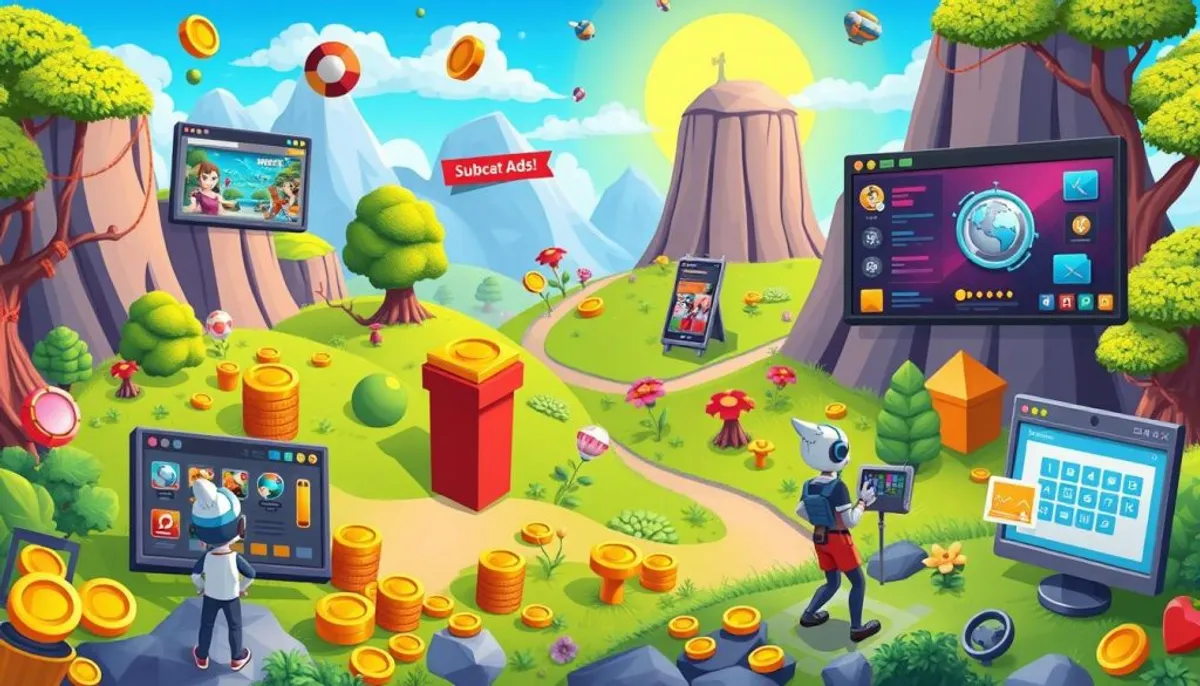The realm of web-based games is undergoing a transformative shift. HTML5 gaming is at the forefront, revolutionizing browser-based entertainment. The era of slow, cumbersome games that necessitated specialized software is behind us. Today, you can seamlessly engage with thrilling games directly from your web browser.
HTML5 gaming is significantly altering the gaming landscape. It seamlessly integrates across phones, tablets, and computers, ensuring a consistent gaming experience regardless of your device. This innovation is notable for its rapid loading times and minimal resource consumption.

What truly sets HTML5 apart is its ability to redefine the boundaries of browser capabilities. We are witnessing games with breathtaking 3D graphics and fluid gameplay, previously exclusive to dedicated gaming systems. The most compelling aspect? You don’t require any additional downloads to access these experiences.
Key Takeaways
- HTML5 gaming works across different devices
- No downloads or plugins needed to play
- Games load faster and use less device power
- 3D graphics and advanced features now possible in browsers
- HTML5 is becoming the new standard for online gaming
The Evolution of Browser-Based Gaming
Over the past two decades, browser-based gaming has undergone a significant transformation. The landscape of web gaming has dramatically shifted, with new technologies reshaping our online gaming experiences.
From Flash to HTML5 Revolution
Flash once dominated the browser gaming platform, powering over 80% of online games in 2010. Adobe’s announcement to discontinue Flash support in 2017 marked the end of an era. This led to the HTML5 revolution, introducing a new era of web gaming.
Current State of Web Gaming
Today, HTML5 games require 40% less bandwidth than their Flash counterparts. The market value of HTML5 games has reached $23.4 billion, with projections indicating a growth to $31.89 billion by 2030. Titles like “Drift Boss” and “Smash Karts” exemplify the potential of modern browser gaming.
Browser as the New Gaming Platform
Browsers have evolved into versatile gaming platforms. They now support complex games across devices, from PCs to smartphones. This accessibility is expected to contribute to the projected $5.5 billion revenue for browser games in 2024.
| Aspect | Flash Era | HTML5 Era |
|---|---|---|
| Market Dominance | 80% of online games (2010) | $23.4 billion market value |
| Security | 300+ vulnerabilities (2015) | Improved security standards |
| Bandwidth Usage | Higher bandwidth consumption | 40% less bandwidth usage |
| Cross-Platform Compatibility | Limited | Extensive (PC to mobile) |
Understanding HTML5 Gaming Fundamentals
Since its introduction in 2014, HTML5 has transformed browser-based gaming. It integrates HTML5, CSS, and JavaScript to deliver rich web experiences. Unlike Flash, which was phased out in 2020, HTML5 boasts cleaner code and superior mobile app development capabilities.
The advent of HTML5 games has introduced a wide array of genres. From simple puzzles to intricate shoot ’em ups, the spectrum is vast. Major players like Square Enix have harnessed this technology, creating substantial titles such as Imperial SaGa Eclipse.
One of HTML5’s standout features is its cross-platform compatibility. Games developed with HTML5 can run smoothly on various platforms, including web browsers, smartphones, and tablets. This capability obviates the need for plugins or third-party software, simplifying the development process.
| Feature | HTML5 | Flash |
|---|---|---|
| Local Storage | Up to 5MB | 4KB (cookies) |
| Audio Support | Web Audio API | Limited |
| Cross-Platform | Yes | No |
| Mobile Support | Excellent | Poor |
Developers can tap into a plethora of JavaScript libraries and frameworks for creating HTML5 games. Phaser stands out for 2D game development, while Three.js is preferred for 3D graphics. These tools, paired with modern JavaScript functionalities like arrow functions and promises, facilitate the creation of efficient and captivating games.
Core Technologies Powering Modern Browser Games
HTML5 has transformed browser-based gaming, introducing groundbreaking innovations. Developers now employ advanced technologies to craft immersive experiences directly in your web browser.
Canvas Rendering and WebGL Integration
Canvas rendering and WebGL integration are the pillars of contemporary browser games. These technologies enable the creation of breathtaking 2D and 3D graphics. They redefine the limits of web-based gaming, allowing for complex visual effects and animations that rival desktop applications.

JavaScript Game Development Frameworks
JavaScript frameworks are pivotal in game development, offering developers comprehensive tools and libraries. Frameworks like Phaser and Babylon.js provide essential components and optimized rendering engines. They significantly reduce development time, enabling the creation of games with rich features and minimal code.
Audio and Video Integration Capabilities
HTML5’s audio and video integration capabilities significantly enhance the gaming experience. Developers can seamlessly incorporate high-quality sound effects, background music, and full-motion video into their games. This multimedia support boosts player immersion and engagement.
The synergy of these core technologies has made browser games more accessible and impressive than ever. With cross-platform compatibility and ease of maintenance, HTML5 gaming is poised for continued rapid growth in the industry.
Cross-Platform Compatibility Benefits
HTML5 gaming heralds a new era of cross-platform compatibility. It enables games to operate seamlessly across diverse devices, broadening audience reach without necessitating separate versions for each platform. This shift significantly impacts the gaming industry, with 87% of multiplayer gamers engaging with cross-platform games.
Mobile Gaming Integration
The mobile gaming market is experiencing rapid growth, projected to hit 775.69 billion USD by 2032. HTML5 games leverage this trend by supporting touchscreen interactions and offline play. This integration boosts user satisfaction and maintains player engagement, even offline.
Desktop Browser Performance
Desktop performance for HTML5 games is continually advancing. Enhanced rendering capabilities now facilitate smoother animations and quicker load times. Such enhancements are critical for delivering a consistent gaming experience across various platforms.
Responsive Design Implementation
Responsive design is essential for cross-platform success. It ensures games adapt to different screen sizes and orientations, offering an optimal experience on all devices. This adaptability is crucial, as 43% of cross-platform gamers actively seek more such games to play.
- Increased revenue potential (20-40% boost)
- Faster development and release cycles
- Cost-effective development and maintenance
- Broader market reach
- Improved user experience through consistency
These benefits make HTML5 gaming an appealing choice for developers, from indie creators to large studios. It fosters innovation and growth within the gaming industry.
HTML5 Gaming Development Advantages
HTML5 has transformed the landscape of game development, presenting numerous benefits for both creators and players. The global HTML5 games market, estimated at $23.4 billion in 2021, is anticipated to expand to $31.89 billion by 2030, with a projected CAGR of 3.50%.
One of the primary advantages of HTML5 is its cross-platform compatibility. Games developed with HTML5 can operate flawlessly across a variety of devices and operating systems, from PCs to mobile phones and even smartwatches. This versatility enables developers to engage a broader audience without the need to create distinct versions for different platforms.
Another significant benefit of HTML5 game development is the simplicity of updates. Developers can deploy changes and enhancements remotely, ensuring that players have access to the latest versions without the necessity for manual updates. This streamlined update process conserves time and resources for both creators and users.
- Reduced plugin dependence
- Cost-effective development
- Faster creation process
- Easy integration of audio and video elements
The familiarity of HTML5 among developers accelerates and simplifies game creation. A substantial community provides tools and support, allowing creators to concentrate on innovative gameplay rather than technical challenges.
| Platform | Monthly Users | Key Feature |
|---|---|---|
| Softgames | 10,000,000+ | Large user base |
| BoosterMedia | N/A | Serves in 50+ countries |
| GamePix | N/A | Simple distribution |
| FGL | N/A | Monetization services |
Monetization Strategies for HTML5 Games
HTML5 games present a variety of monetization avenues for developers. The versatility of HTML5 facilitates the seamless integration of multiple revenue streams. This makes it an attractive platform for game creators seeking financial success.
Reward Video Advertisements
Reward video ads have emerged as a prevalent monetization tactic in HTML5 games. These ads, lasting between 15 to 30 seconds, offer in-game rewards for viewer engagement. This approach has proven effective, with video ads generating an average of $2.98 per user. In contrast, banner ads yield only $0.76 per user.
In-App Purchase Models
In-app purchases (IAPs) contribute significantly to mobile gaming revenue, accounting for 48% of total earnings. This model enables players to acquire virtual goods, currencies, or upgrades within the game. IAPs are crucial for many HTML5 games, providing valuable items without disrupting gameplay for non-paying users.
Subscription-Based Gaming
Subscription models grant continuous access to premium content for a recurring fee. This approach is ideal for games with frequent updates and exclusive features. It fosters player loyalty and exclusivity, ensuring a consistent revenue stream for developers.
| Monetization Strategy | Average Revenue | Player Engagement |
|---|---|---|
| Reward Video Ads | $2.98 per user | High |
| In-App Purchases | 48% of total revenue | Medium |
| Subscription Gaming | Varies | Very High |
The HTML5 gaming market is expected to expand at an annual rate of 10.4% from 2020 to 2025. With players in the United States dedicating an average of 33 minutes daily to HTML5 games, the monetization potential is substantial. Achieving a balance between user experience and ad placement is essential for successful monetization without alienating players.

Performance Optimization and Resource Management
HTML5 games excel in performance optimization and resource management. They operate efficiently, utilizing minimal resources. This results in faster loading speeds and smoother gameplay. Such efficiency is paramount for a seamless gaming experience, notably on mobile devices where resource management is critical.
Developers face the daunting task of delivering high-quality graphics and sound effects while ensuring speed. To overcome this, they employ a variety of strategies:
- Compressing game resources to enhance load times
- Utilizing GLB format for mesh data, boasting a parse time of just 50 milliseconds
- Implementing texture compression to diminish GPU memory usage
- Selecting the appropriate resolution based on device capabilities
- Restricting graphical complexity and reducing draw calls
Speed of loading is a critical factor. Nearly 40% of users may abandon an HTML5 game after six seconds of waiting. To address this, developers employ tactics such as lazy loading, parallel file downloading, and code minification.
| Optimization Technique | Benefit |
|---|---|
| GLB format with Draco compression | Reduces file size to 1.84 MB |
| WebP for graphics | Enhanced compression |
| SVG graphics | Superior scaling for diverse screens |
| RequestAnimationFrame | Boosts animation performance |
Through a focus on performance optimization and resource management, HTML5 game developers can craft engaging experiences. These experiences load rapidly and operate smoothly across a range of devices and platforms.
Future Trends in Browser-Based Gaming
The evolution of browser gaming is accelerating, with significant advancements on the horizon. Browser-based games are poised to challenge traditional console and PC experiences. They promise high-quality entertainment without the need for downloads or installations.
AAA Games in Browsers
Advances in HTML5 technology are bringing AAA games to browsers. Epic Games is working on integrating Unreal Engine into HTML5. Unity has rebuilt its player plugin with WebGL support. These developments indicate a shift towards more complex and visually stunning browser games.
Cloud Gaming Integration
Cloud gaming is transforming the browser gaming landscape. It enables players to access high-end games without the need for powerful hardware. Indian game development companies are leveraging cloud technology to enhance player experiences and provide cross-platform access. This trend is creating new opportunities for streaming services and instant-play games.
Emerging Technologies Impact
Emerging technologies are significantly influencing the future of browser gaming. WebGL and Babylon JS are leading frameworks for 3D modeling in HTML5 games. Social games with HTML5 2D graphics are gaining popularity, focusing on connectivity and community engagement. Facebook’s instant game design now includes live streaming features, further enhancing the social aspect of browser gaming.
| Trend | Impact | Benefits |
|---|---|---|
| AAA Games in Browsers | Higher quality games accessible via browsers | No downloads, instant play |
| Cloud Gaming Integration | Access to high-end games without powerful hardware | Cross-platform accessibility, reduced hardware costs |
| Emerging Technologies | Enhanced 3D graphics and social features | Improved user engagement, community building |
As these trends evolve, HTML5 is set to become the dominant standard in gaming. The future of browser gaming appears promising, offering players seamless, high-quality experiences across various platforms.
Conclusion
HTML5 gaming is revolutionizing the realm of web-based entertainment, marking a significant shift in browser-based gaming. With over 2000 clients utilizing HTML5 game development services, its popularity in the industry is undeniable. This technology empowers developers to craft games that seamlessly operate across iOS, Android, and Windows platforms. This opens up vast new avenues for both creators and consumers.
The accessibility of HTML5 gaming is a major boon. It allows players to engage with games online without the need for downloads or installations, enhancing convenience. This compatibility spans a wide range of devices, from smartphones to desktops, and is supported by leading browsers such as Chrome, Safari, and Firefox. For developers, HTML5 represents a cost-effective option, obviating the necessity for additional plugins or software.
Looking ahead, the future of HTML5 gaming is brimming with potential for innovative and immersive experiences. Its capacity to support advanced graphics through WebGL and Canvas, alongside its ease of updates and troubleshooting, heralds exciting advancements. As HTML5 continues to evolve, it is poised to deliver unparalleled web-based entertainment, expanding the horizons of what is achievable in browser gaming.
RelatedRelated articles

